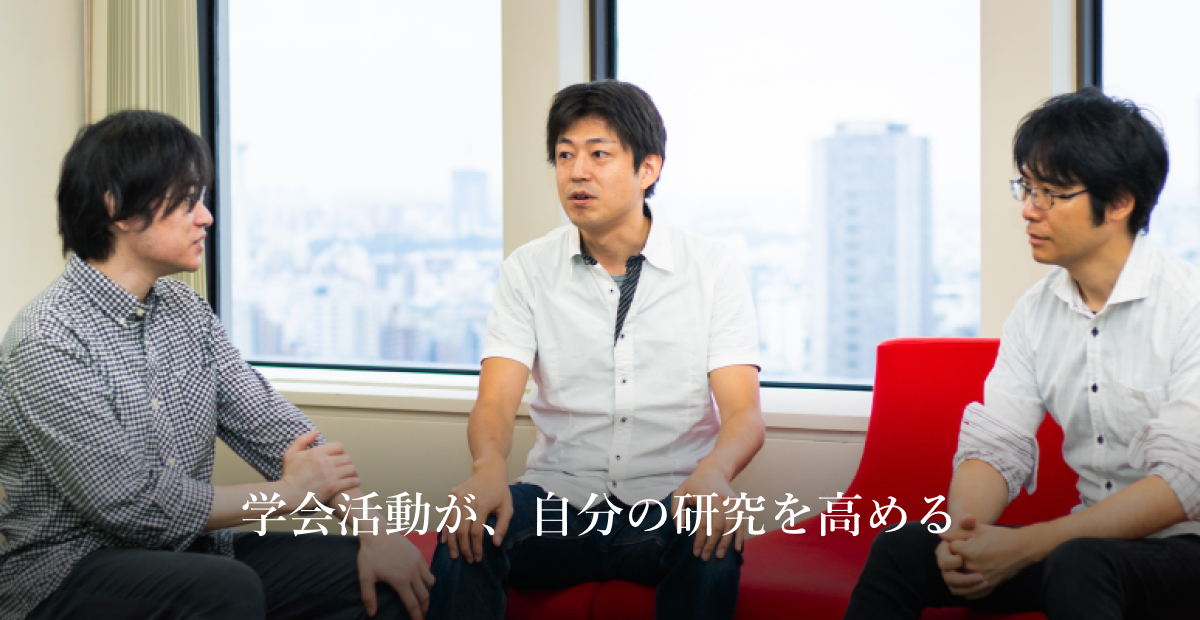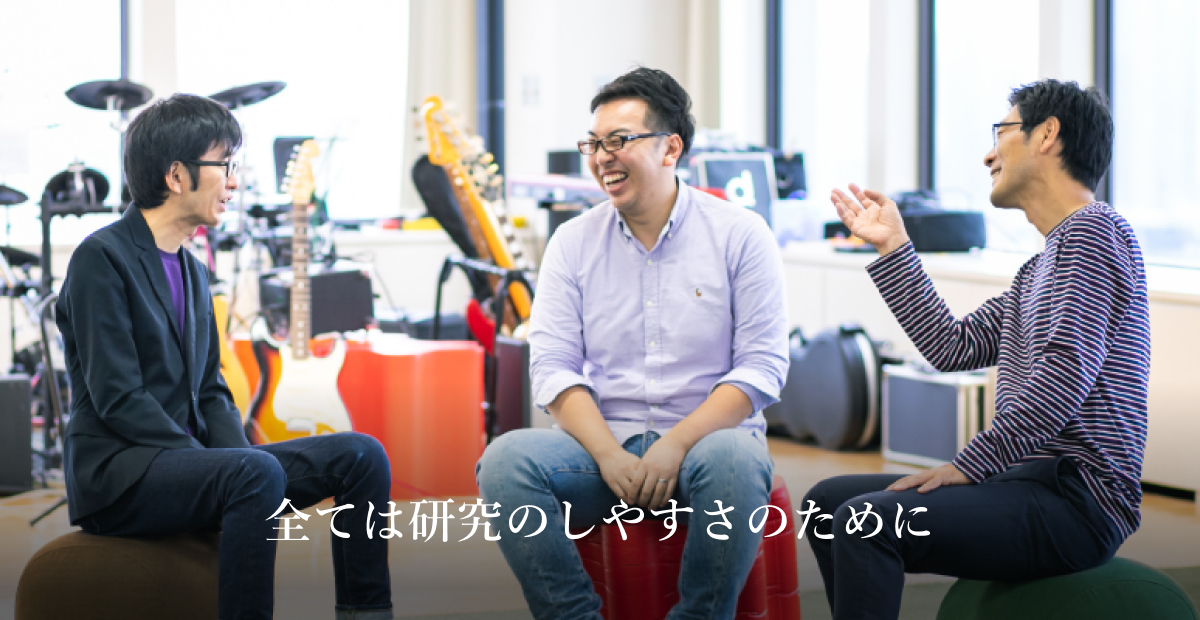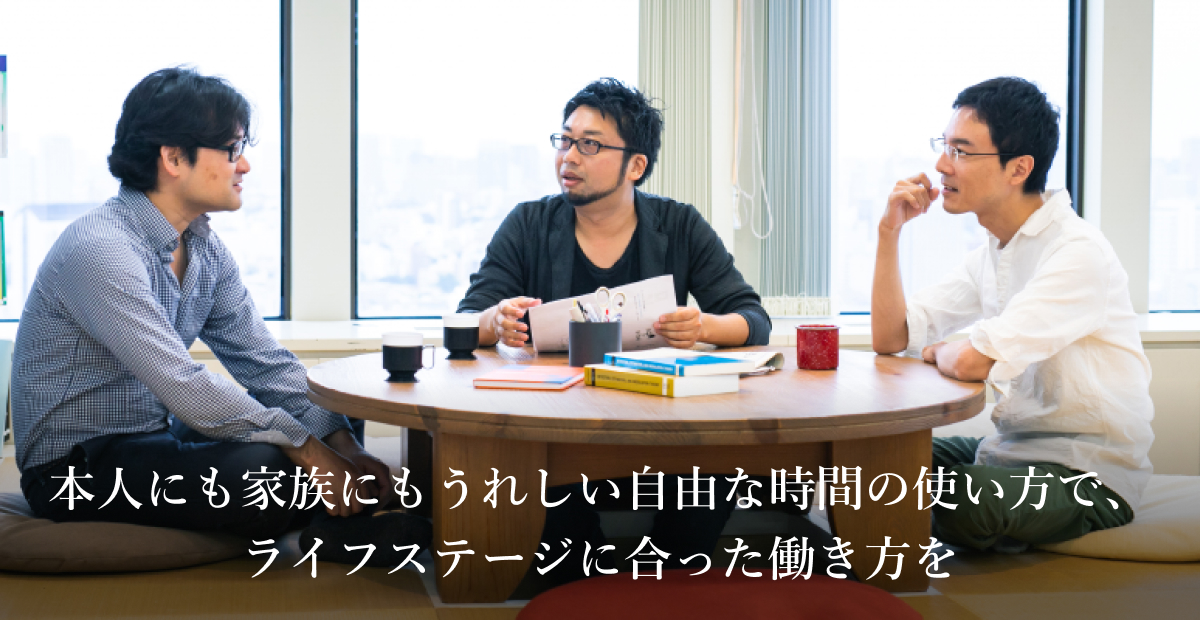Round-Table Discussion: About Overseas Research Exchange Program
Studying abroad is like a chef going to a great culinary city to train
DENSO IT Laboratory (hereafter, IT Lab) has a study abroad program, offering those with the desire an opportunity to study overseas. In the past, we have sent students to MIT Media Lab and UC Berkeley, while currently we have one student at Stanford University. We asked the first beneficiary, Mr. Sekikawa, and the second, Mr. Ishikawa, about the appeal and learning opportunities to be found in the IT Laboratory International Exchange Program.
Member
-
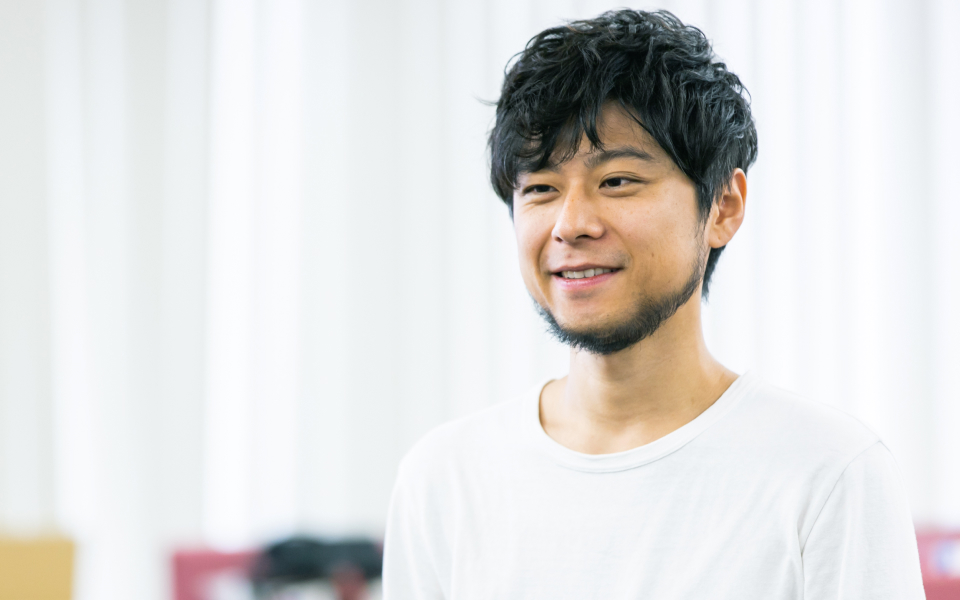 Yusuke Sekikawa
Yusuke Sekikawa
Research and Development Group
Researcher
After graduating university, I worked as a patent examiner and that allowed me to be involved with product development. I enjoyed development work, but I felt a strong desire to do research and so I changed positions in 2011. At present, I’m involved in research of neural networks. More than someone who thinks logically about problems, I’m the type who likes to be hands on, trying different things and thinking as I go. -
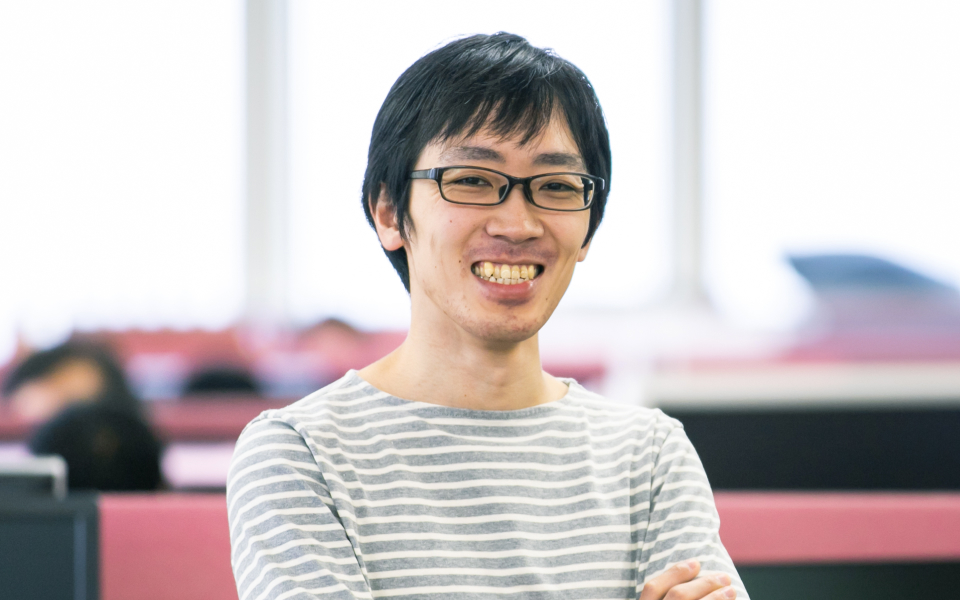 Kohta Ishikawa
Kohta Ishikawa
Research and Development Group
Researcher
My major in university was theoretical physics. After beginning work at a finance company, I switched over to a company doing software development, and am involved in numerical optimization and statistical analysis. However, I wanted to put my knowledge of theoretical physics to work, and so changed again in 2012. At present, I take part in the theoretical interpretation and analysis of neural networks, as well as machine learning that will enable better learning.
Daily life while learning at MIT and UC Berkeley
― What kind of research did you do while studying abroad?
Ishikawa Beginning in September, 2015, I spent
two years at UC Berkeley in the lab of Professor Bruno Olshausen. As a
visiting scholar, I mainly conducted research into machine learning.
You
went just before me, didn’t you Mr. Sekikawa?
Sekikawa Yes, I studied at MIT. My term was a bit shorter, nine months from fall 2014 to June 2015, and I was assigned to a research group under Hiroshi Ishii in the MIT Media Lab.
It was DENSO who approached me about taking part in the program. I think DENSO and Professor Ishii had previous connections in the area of interface research.
The MIT Media Lab has many labs covering dramatically different themes, including architecture, art, CS, neuroscience, and sociology. Researchers from all different backgrounds participate in discussion and the goal is to be a facility that gives birth to new research. My area of the lab was focused more on interfaces and art.
I did UI research along with the students who were in the same lab with me, but I also worked with students in other labs on more CS-related research, such as taking images shot by a pinhole camera with many holes in it and using the sparse features forming the basis of natural image definition to restore images.
The lab run by Professor Bruno that you were in researched neuroscience, didn’t it, Mr. Ishikawa? Like me, that’s quite different from the matters normally handled by the company.
Ishikawa You’re right. When humans recognize images, they carry out a process of integrating various information, beginning with low-order processing. So, neuroscience is about revealing those biological processes that humans carry out first and why.
Professor Bruno is an advocate of the sparse coding model, which seeks to explain these matters mathematically. After two years doing research in his lab, I felt that we would one day be able to develop a model that could more naturally explain the complex statistics of images by expanding the sparse coding model.
If there is a connection with the work I do now, it is that those models can be applied as basic structural elements of deep learning.
Learning the importance of “accumulation” to organizational research
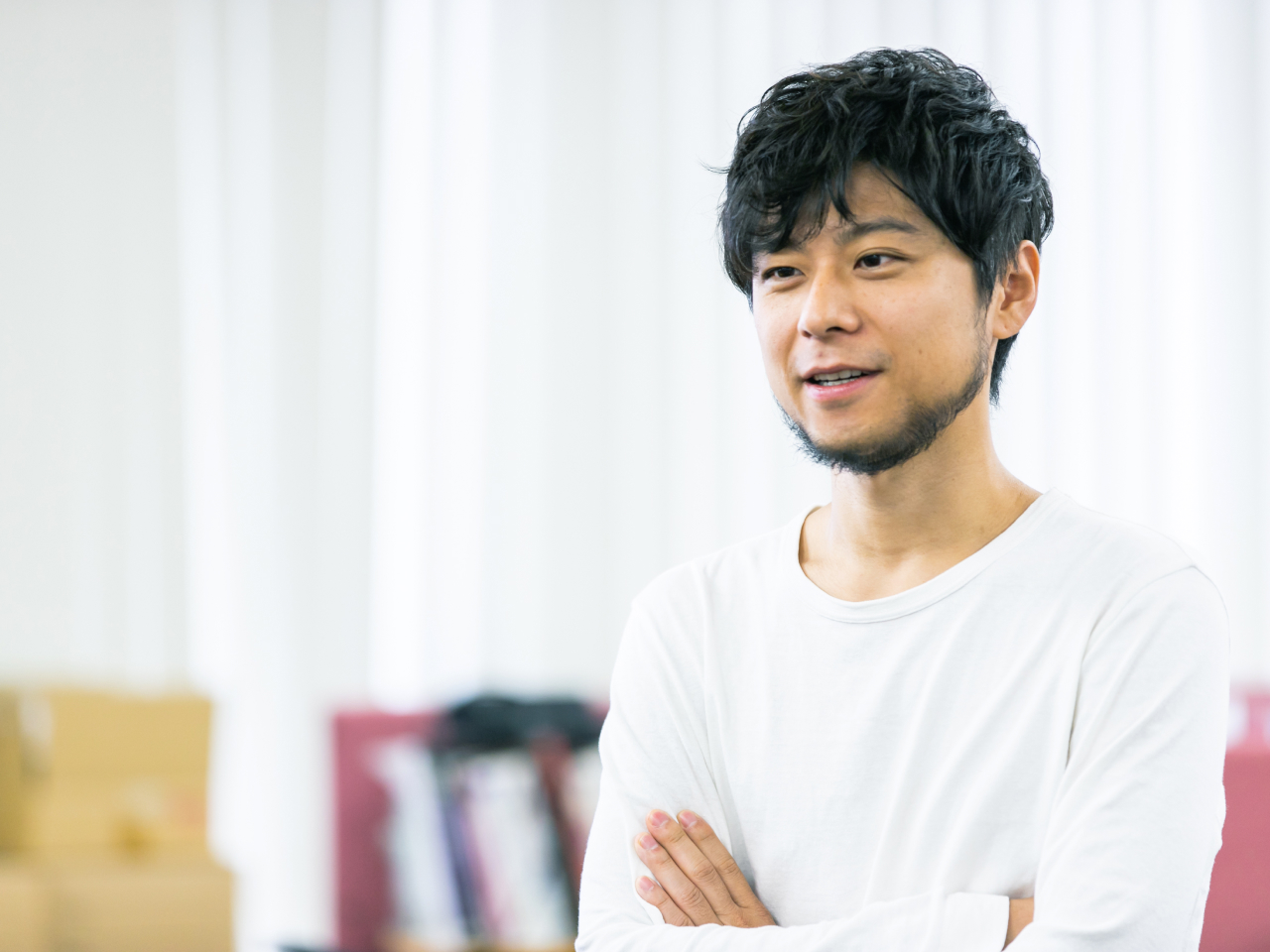
Sekikawa Before you left, you said you had no plans to make sparse coding the theme of your research. Did the direction of your research change while you were abroad?
IshikawaAt first, I was thinking about other methods. But before long, I felt that if I was going to be in Professor Bruno’s lab, it would be a waste not to acquire their knowledge. When a new student enters a lab, they have to absorb the accumulated knowledge and add their own knowledge to that mix. I realized that’s what leads to new ideas.
Sekikawa That’s a good thing.
Ishikawa Actually, I feel like without this experience, there would have been no point for me to be in the lab. Lately, even in the company, we’ve had discussions about being aware of accumulation.
With our current research into deep learning, the subject matter is vast and fast-moving. New research papers appear all the time and it’s difficult for an individual on their own to keep up with everything. We don’t all have to do the same thing, but on a meta-level, we need to accumulate information as an organization and use that to establish a place for our research.
Japan’s research labs are very organized, but I have the impression that they’re also extremely top down, making communication difficult. I’ve never felt those kind of barriers at IT Lab. Everyone engages freely in discussion. However, I also feel like things are still weak from the perspective of organizational accumulation.
For a researcher, studying abroad at one of the primary centers of learning is akin to a chef going to a great culinary city.
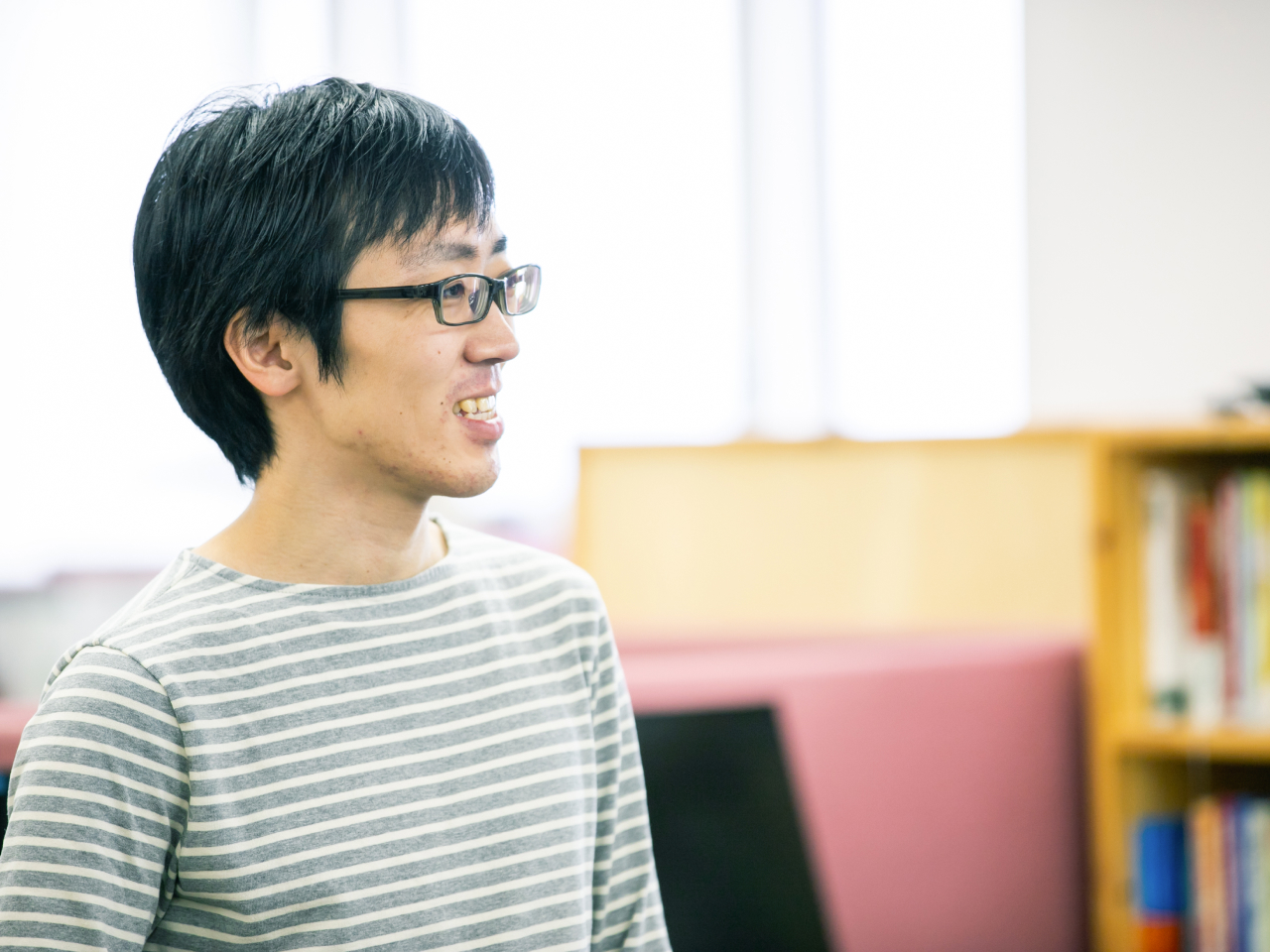
― Both of you studied abroad in your early 30’s, but had you wanted to go overseas to study earlier in your life?
Ishikawa I had always wanted to go if I had the chance. For research into machine learning and deep learning, America and Europe are still the centers.
Sekikawa It’s like a chef going to Italy or France to study (laugh).
Ishikawa Right. All the famous information companies are in America and the research environment in America sets the standard. At UC Berkeley, there were a lot of other Japanese researchers and I made a lot of new acquaintances. As I was at a scientific research lab, there was no-one else from a Japanese corporation, with everyone else seeking their PH.D. How about you, Mr. Sekikawa?
Sekikawa The director of the MIT Media Lab is Joichi Ito, so there were a lot of people from Japanese corporations. Among the other students as well, there were many people who had gained work experience and then returned to academia. Many of them were older than me and we became quite close.
Studying abroad was fun for the family too
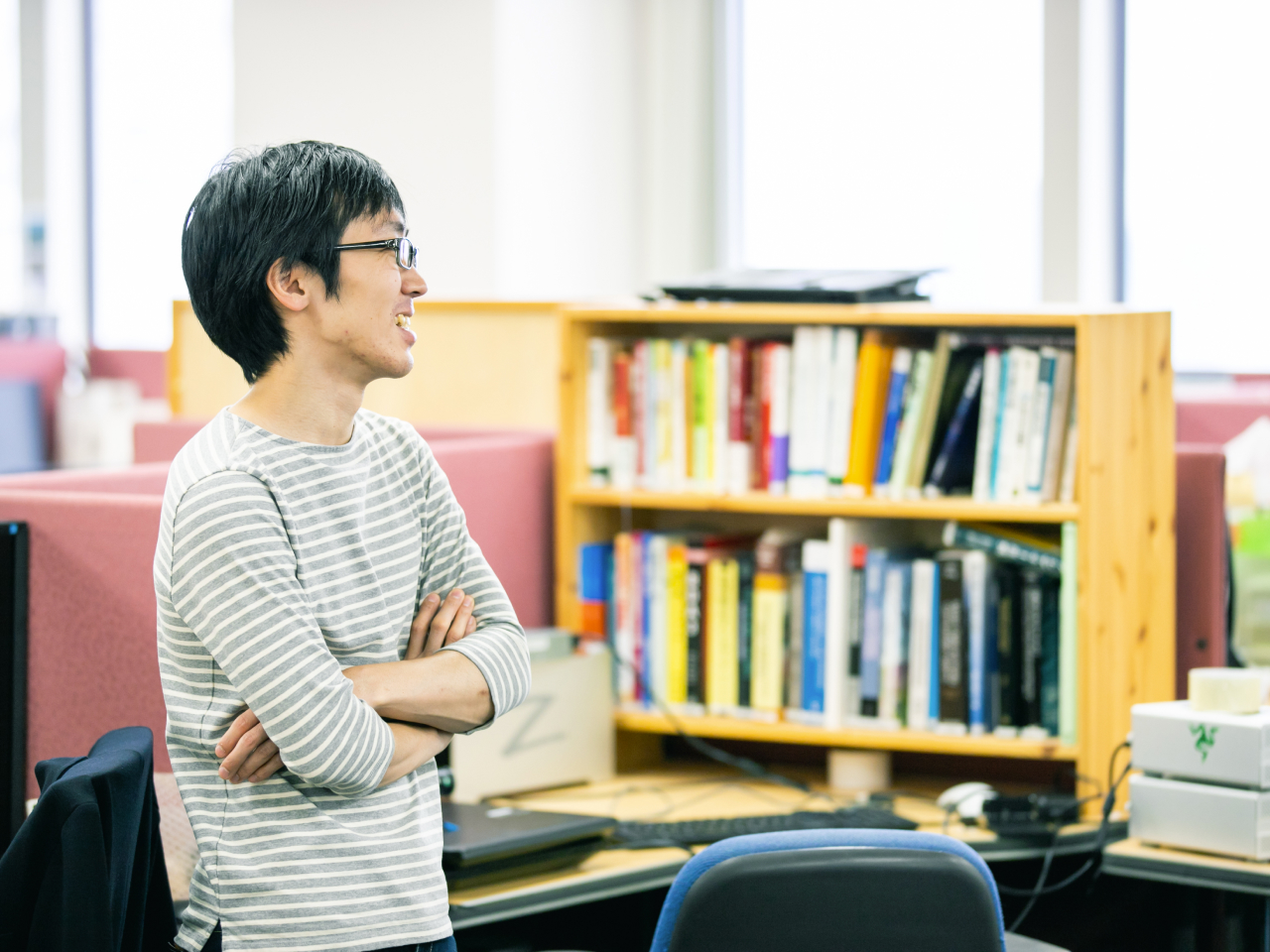
― While studying abroad, your family also went with you, right?
Ishikawa I was fully dispatched by the company, so my family - just my wife - was able to come with me. She had her own work issues to work out, though, so we only stayed together for the second year.
Sekikawa I was sent by myself on temporary assignment, so I envy that you could come home and have dinner with your family.
Ishikawa I can see that. Having family there makes things a lot easier, mentally. I met a lot of people through my wife, so I was glad for that. Whether or not you will adjust to the local environment abroad depends on each person, so I imagine it may be tough for some people, but luckily, that was not the case for us.
Sekikawa Unlike those of us in the research lab, they’re better at forming a family and socializing. You can go to language schools, make friends, and have more fun.
Ishikawa Yes, I agree. I remember holding a sushi party at my home because a Brazilian friend of mine liked sushi. On days off, I would have parties with my friends, go traveling in pairs, or go hiking in my neighborhood.
Sekikawa I was on a short-term stay, so a lot of the time, I went to the lab on weekends too and the only place I could go for walks was nearby. Boston is a metropolitan area, but it’s fairly small and Harvard was within walking distance, so I went there a lot. I even went to the bar where (Facebook founder) Mark Zuckerberg gets told off by his girlfriend (laugh).
Ishikawa Sounds like a scene from “The Social Network”.
Research in America begins with Forming a Vision
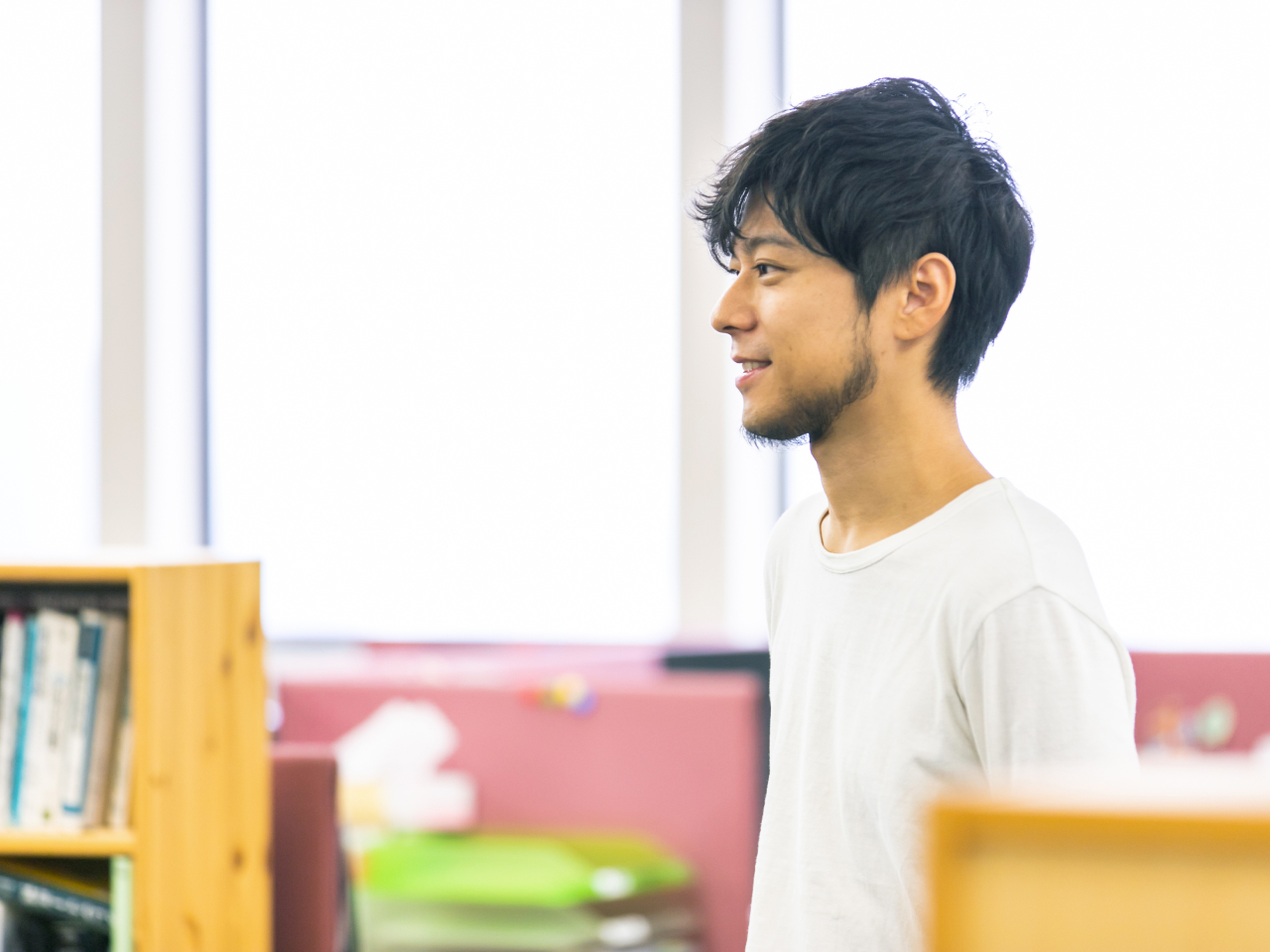
― Do you feel that anything changed for you after studying abroad?
Sekikawa The first thing was that I became proficient in English (laugh). Or more to the point, I no longer felt afraid to talk. Whether it was holding conferences or giving presentations, participating in meetings, even in poor English, I became able to talk without hesitancy.
Looking back, I think my time studying abroad was a good turning point for me. At the time, I was lacking in mathematical knowledge during my research and that had become an obstacle to my work, so I was feeling a bit pressured. By going abroad, I was able to concentrate on my studies and gain the knowledge that I needed.
Also, by being in the media lab, I was able to see a whole other world and that was a valuable experience. Their job is to propose concepts, so rather than showing their technology, they concentrate more on building a vision and better communicating their concepts through demonstrations and research presentations. Unlike computer science, they’re not focused on building something that will be put to work. They have different objectives from our work, so I can’t simply copy what they did, but I’m glad that I was able to learn about their approach.
Ishikawa In America, almost everyone loves “vision” and they spend a lot of time on developing this. They think about the person they want to be and then they take specific steps to get there. For those on a doctoral course, it’s normal to spend the first 2-3 years thinking only about vision.
Sekikawa That’s amazing. You can’t do that in Japan. You have to begin work on your thesis paper in your second year.
Ishikawa Although it can be difficult while working at a company, I realized the importance of thinking about the true nature of things and trying to pursue an ideal. At the same time, when compared to other companies, I think IT lab gives you a high degree of freedom when considering what to study on your exchange. At other companies, the curriculum you study would be strictly defined and you wouldn’t do anything outside of that. In my case, however, I did everything myself, starting with the search for a teacher.
Sekikawa Yes, I definitely felt that too. Not just studying abroad, but studying at a university while working for a company, the common thinking is that you’re supposed to use joint research at the college to be engaged in something you couldn’t do at the company, and then bring these results back to the company. However, when the researcher is able to decide their own themes, like at IT Lab, it’s not just fun for the researcher, it’s also an opportunity for the company themselves to develop new themes.
― What do you want to do in the future?
Ishikawa I’d like to gain a better understanding of the mathematical meaning behind neural network models. In neuro-science, before building the overall model, you have to think about the meaning of each part and put it together piece by piece. If you could do the same when building algorithms for neural networks, understanding the meaning of each block, I believe you could make things a lot simpler. I’d like to establish those basic elemental formations.
Sekikawa I’d like to explore the potential of neural networks similar to the brains of living things. Current neural networks comprise massive addition and multiplication problems, but there is a lot of waste in the processing and I think it will be difficult to efficiently carry out the more complicated, large scale learning and inferences that will be necessary in the future. To that end, I’d like to explore “sparking neural networks”, a new paradigm of neural network that is similar to the brains of living things. So, I’d love to consult with you on that, Mr. Ishikawa. I hope we can speak more in the future.
IshikawaI hope the same. Talking to you today, I realized how valuable my experience living and doing research overseas has been to me.
Sekikawa Me too. I think I was given a good opportunity. I was able to do research overseas and grow a lot.

